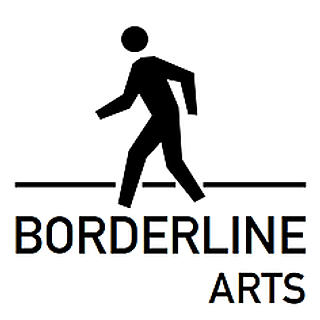The Link Between BPD And Eating Disorders
- Sarah Eley
- Feb 28, 2017
- 2 min read

It's National Eating Disorders Awareness Week this week.
People who have Borderline Personality Disorder (BPD) are more likely to have an Eating Disorder than people in the general population, so it's an important issue for us to highlight.
I struggled with Anorexia for about 18 years before I was diagnosed with BPD (aged 26). At this point, I realised that I was restricting food partly as a way to shut down and/or cope with the difficult feelings and struggles that felt unbearable due to the BPD symptoms. And this is not uncommon...
Dr. Mary Zanarini and her colleagues at McLean Hospital carried out a study, which found that 53.8% of patients with BPD also met criteria for an eating disorder. 21.7% of patients with BPD met criteria for Anorexia Nervosa and 24.1% met criteria for Bulimia Nervosa.
Trying to get treatment for an eating disorder (like many other illnesses) is far from easy! I've often felt I had to be skeletal to be taken seriously and given the care I need. Often services will only take you on if your BMI is already very low. To illustrate this point, a few of my friends and I from First Steps Derbyshire created an amusing (but hard hitting) short film, which you can see by clicking here. It shows how ridiculous and incredibly dangerous this delayed intervention is, as people are often too ill to want help or too ill to fight by the time they meet the criteria. This often leads to them being hospitalised or even dying.
On top of that, there is such internal competition to lose more weight each day and also a kind of jealously when you see people more underweight than you. So often it feels like you're not a 'good enough anorexic' unless you're skeletal and hospitalised, but even then you can never get to that 'good enough' standard...as that would mean you are dead.
Often the hardest part of having an eating disorder is when you are a normal weight and without support. When you struggle with binging or overeating, it's often so much harder to get support and that is just not fair.
My points are:
1. Eating disorders aren't always visible.
2. You don't have to be skeletal to deserve help - your struggle is real and should be validated.
3. You will NEVER meet the eating disorder's standard - it will just kill you.
4. Early intervention saves lives!
5. Anorexia is just one of many eating disorders
6. Your worth is not defined by the eating disorder!
I'm working on discovering who I am without the eating disorder - I love Lego, I'm playful and easily amused. I love learning languages and being with animals. I'm passionate about changing negative views around mental health. I love arts an creativity and travelling. I am not my mental illness!! I'm learning to be more accepting of myself and to love myself! It's tough, but it will be worth it if I can finally truly love myself for who I am in the end!
You are NOT your mental illness!
If you, or someone you know, are struggling disordered eating, we'd recommend you contact First Steps Derbyshire for local support. First Steps offer support to people with any eating disorder. You can also contact B-EAT (a national eating disorders charity) for support and advice.





